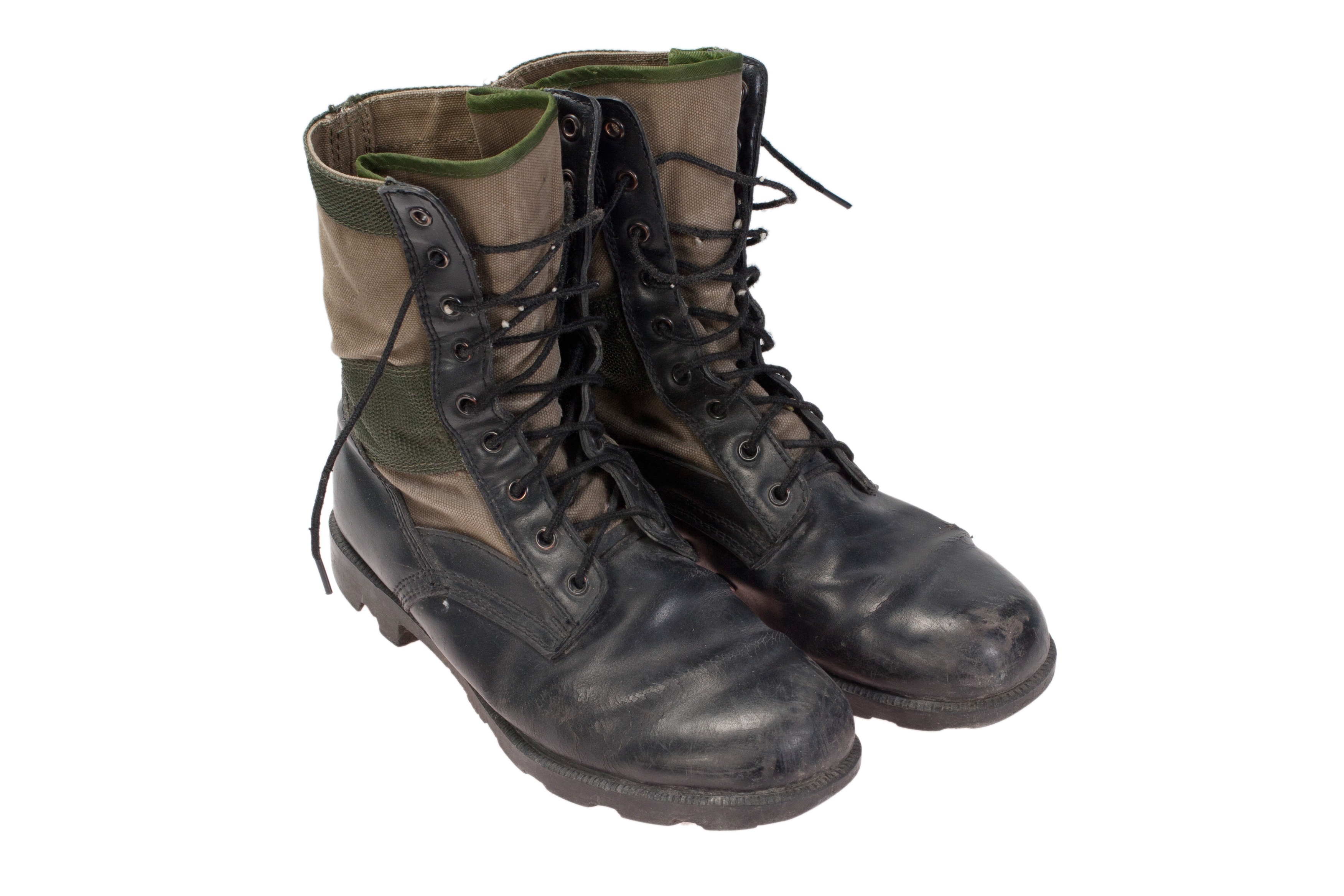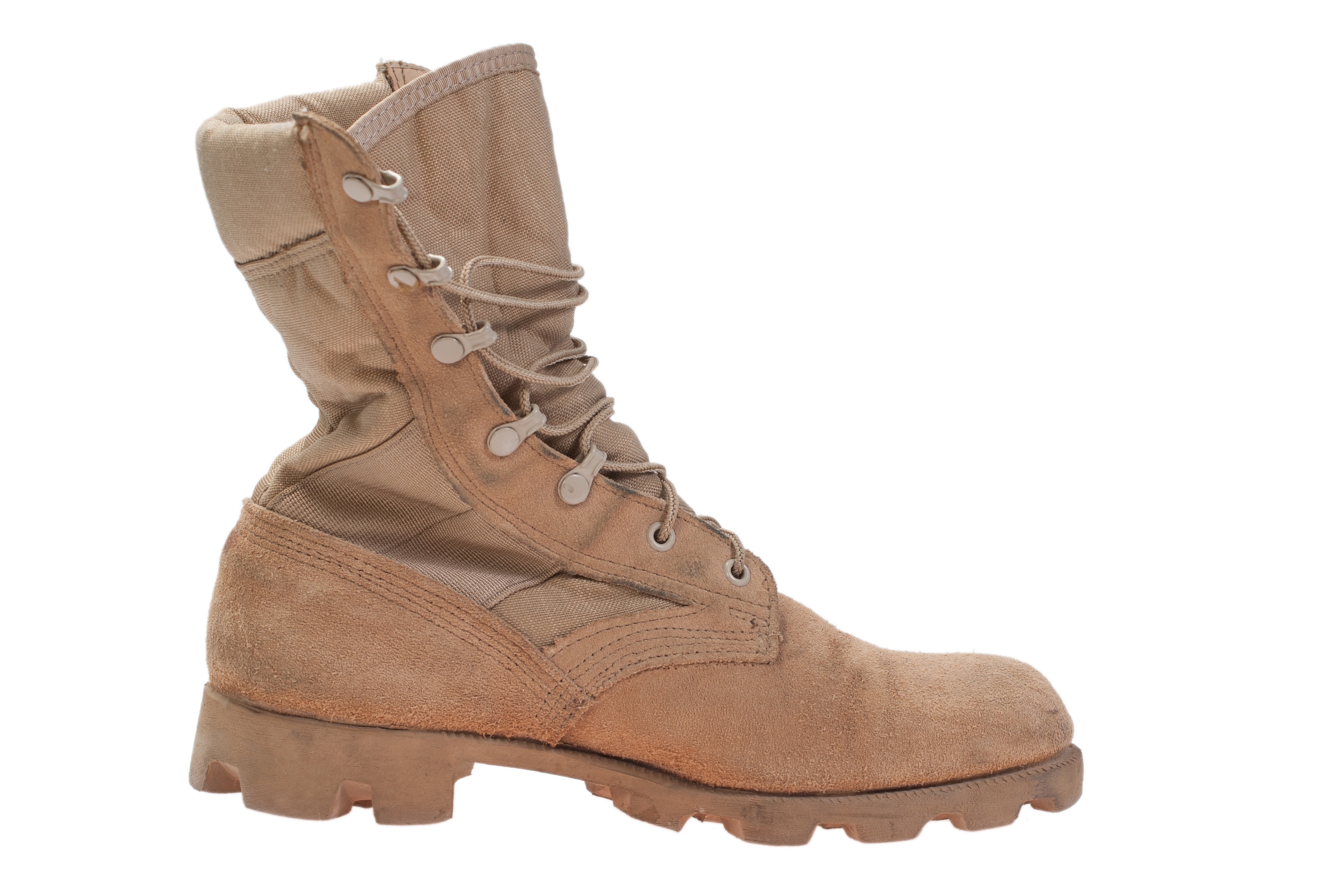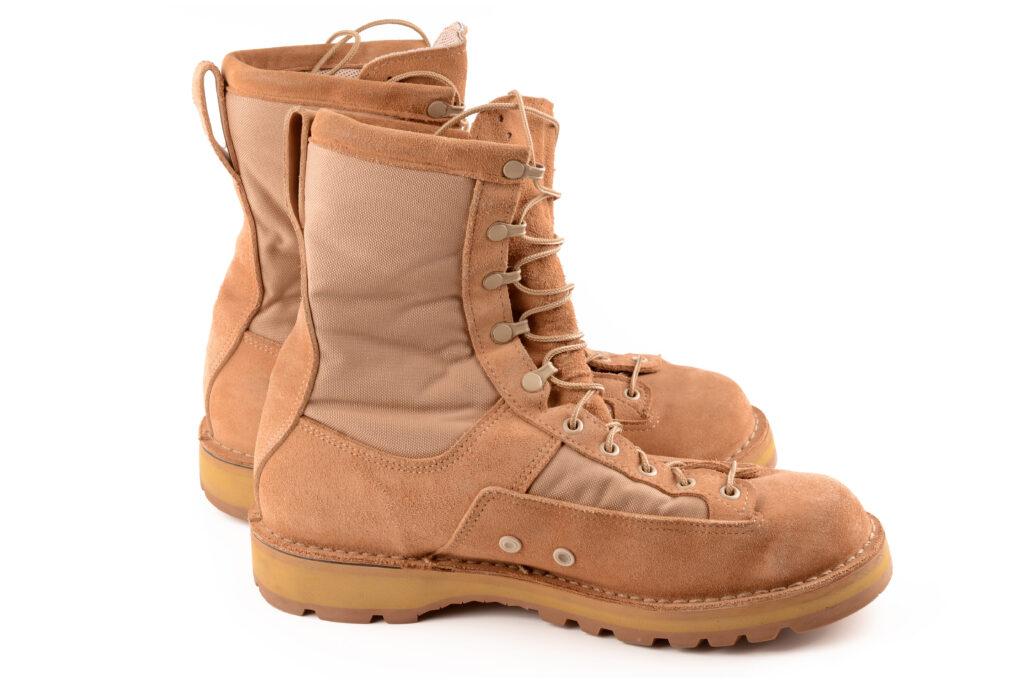
The line may blur between combat boots and hiking boots, especially when it comes to which one is better for hunting. Depending on your terrain and the length of time you’ll be out in the wilderness, you may or may not want a pair of combat boots.
Combat boots can be good for hunting because they offer support for your feet and ankles. They are also made to handle a variety of weather conditions and terrain types over a long period of time. However, they can be cumbersome because of their heavy weight and rigid design.
Here are some reasons why a pair of combat boots would suit you well on a hunt, as well as a couple of potential drawbacks.
Why You Should Buy Combat Boots
Added protection
Combat boots are made to provide the wearer with support and protection, especially in vulnerable areas like the ankles. Their high-laced design keeps the wearer from injury if he rolls an ankle, gets bit by a snake or animal, or travels through rough terrains like rock or ice.
In the case of injury, combat boots can relieve some strain in the lower legs because of their high support. If the injury happens to be a sprained or broken ankle, that same high-laced design serves as a small stabilizer to prevent swelling or more unwanted movement. Should you be out hunting and become injured, you’ll want to have as much help as you can in the boot department.
Because of that same style of support, combat boots also serve to alleviate strain if a hiker or hunter is carrying extra weight. When it comes to hunting, you’ll likely have to haul an animal carcass at some point, so combat boots will take some pressure off your lower legs.
The thick soles and tips of combat boots shouldn’t be overlooked either. Hunters often face tough terrain and unpleasant weather, so wearing combat boots protects their feet from thorns and sharp rocks. In some instances, waterproof or water-resistant combat boots can keep out any moisture that comes with treading through rain or snow.
Made for extreme conditions

Hunting isn’t always a day or weekend trip in favorable terrain. Some hunters spend a week or two trekking through mountains or valleys, which means they’ll need good boots that can withstand the wear on them for the duration of the trip.
Combat boots, of course, are made for military personnel who need boots that will last them in unfavorable conditions, all while keeping their feet safe and maintaining good traction. If you intend to regularly spend time outdoors for long periods, then you can’t go wrong with a pair of combat boots, which are made to excel in any terrain.
The nice thing about combat boots, too, is that you’ll find plenty of styles that suit your needs best. From boots that are made for hot, sandy conditions to wet, rocky landscapes and everything in between, you can purchase and break in boots that will fit whatever hunting area you desire.
And since combat boots are intentionally designed to last under consistent duress, they don’t wear out easily. If you want to invest in boots that will last you a long time, consider combat boots and which ones do best in the terrain you’ll be hunting in.
Here are a few well-liked combat boots for hunters and hikers:
- Garmont Men’s T8 Bifida Tactical Military
- Danner Men’s Recon 200 Gram Uniform Boot
- A.T.A.C. Side Zip Boot
- RYNO GEAR Tactical Combat Boots
- Rocky Men’s S2V Steel Toe Work Boot
Why You Shouldn’t Buy Combat Boots
Heavier than hiking boots
Combat boots intend to last in any condition, which may make them weigh more. Although different designs and variations in the style have remedied this drawback over the years, not all combat boots are made with the same lightweight feature in mind.
Hunters who haven’t worn combat boots for extended periods over long distances may find themselves bogged down by combat boots. This can result in exhaustion, muscle strain, and slowed movement. For some, this just means that it takes time to grow accustomed to combat boots. For others, it’s a deal-breaker between combat boots and more lightweight hiking boots.
As you think of which brand of combat boots to purchase, be sure to read the description and personal reviews of buyers. Some boot brands tout lightweight designs, but customer reviews can contradict that point. Even if you don’t mind buying boots that are a bit heavier but will suit your hunting ensemble, you should still find a pair that won’t stress your muscles more than necessary.
Fortunately, you can familiarize yourself with your pair of combat boots as you wear them, which means not only do you break them in, but you build up stamina until you no longer feel the extra weight on your feet. The longer you wear the pair, the less you will notice the heaviness, as it becomes part of what you carry.
Inflexible design

The kind of support combat boots offer can make certain brands unforgiving when it comes to flexibility. Their rigid designs, while meant to be protective, may do more damage to your feet if you’re not careful.
The thick soles of combat boots don’t have much give, so if you need your shoes to match uneven terrain, you can potentially strain your feet from compensating for the combat boot’s lack of flexibility. The soles are also known to be tough on feet because they don’t have much arch support or shock absorption, but this can be remedied with a sole insert.
Combat boots’ high-laced design can also cause discomfort for some wearers. The snug fit is known to chafe, and when you’re out hunting in the wilderness, the last thing you want to distract you is any irritating or painful rubbing from your boots. A pair of high socks or two may prevent this, but if your boots get wet and aren’t waterproofed enough, you’ll be in for a miserable walk.
Consider whether you need more flexibility or durability in your combat boots and choose based on the options.